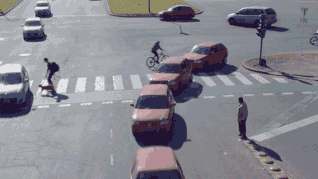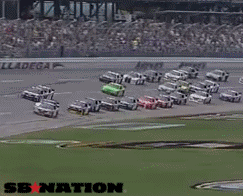The economy is one of the most complex systems that exists in the world. Perhaps even the most complex system. I like to think of the monetary system like a car. There are very specific institutional structures that act as certain parts of this system and in a vacuum that car or system will do certain things. For instance, when someone borrows money from a bank to finance investment in a productive innovation it is much like pouring fuel into the car and stepping on the gas. This gas runs through a series of institutions/firms/households that are interconnected in a specific way that can be easily explained by understanding how the flows move through the system of accounting. In this simple example, innovation and the financing of productive investment is what makes our economy or car, “go”.
The problem is that the environment in which our car exists is unbelievably complex. There are so many external forces impacting the car that it’s very difficult to decipher what is causing what. Add behaviorally biased people inside the car and deciphering our car’s actions goes from very difficult to decipher to nearly impossible to decipher.

(Figure 1 – How the world works according to economists)
(Figure 2 – How the world actually works)
I write this post in reference to the rise of empirical economics that we see in many places. I think this is a fantastic development. Testing economics is very important for its future progress and certainly an improvement over hand waving theory. But I hope that these experimenters don’t lose sight of the fact that they involve serious limitations given the uniqueness of each experiment within its own environment. For instance, this Tweet by Tim Duy, who is excellent by the way, is a nice example:
We really some some country to test the hypothesis that raising interest rates raises inflation.
— Tim Duy (@TimDuy) March 18, 2016
Hmmm. I don’t know if that would actually tell us much about the general impact of raising interest rates. For instance, raising interest rates in the USA could exacerbate the rise of the US Dollar versus other currencies in an environment in which all other Central Banks are easing policy. This could create a perverse feedback loop in which the dollar exacerbates emerging market problems and reverberates through the global economy by leading to US weakness. The USA operates in a highly unique environment at all times as the dominant reserve currency. Therefore, what’s true in Japan might not actually be true in the USA. And this is true for each country relative to what is currently occurring in its own unique environment.
This is hardly a conclusive example, but that’s the point. When we think of the economy we should think of each country and environment as though it is its own unique experiment. And what is true for one experiment might not be true at all for another experiment. When we consider policy we shouldn’t overlook this. So, let’s embrace the rise of empirical economics, but let’s not forget its limitations at the same time.
Mr. Roche is the Founder and Chief Investment Officer of Discipline Funds.Discipline Funds is a low fee financial advisory firm with a focus on helping people be more disciplined with their finances.
He is also the author of Pragmatic Capitalism: What Every Investor Needs to Understand About Money and Finance, Understanding the Modern Monetary System and Understanding Modern Portfolio Construction.



